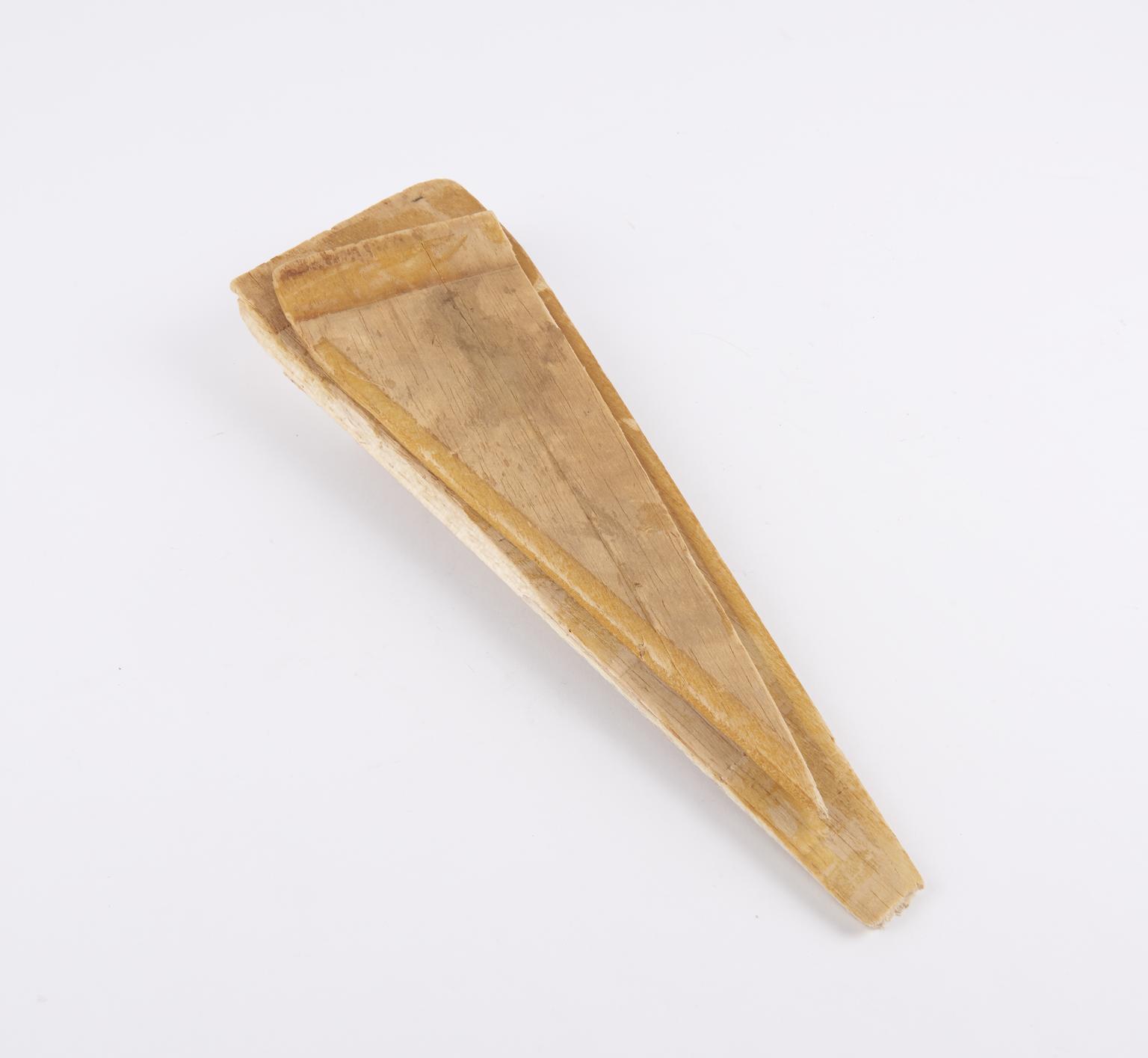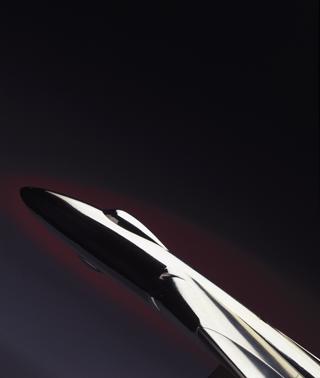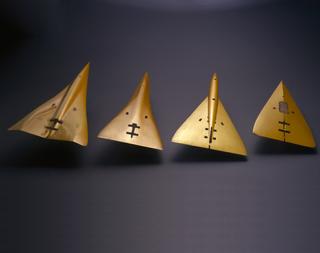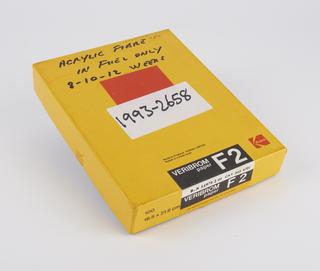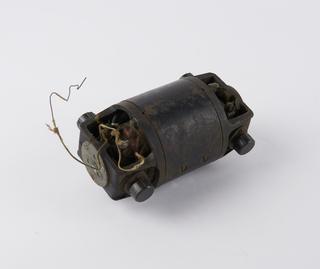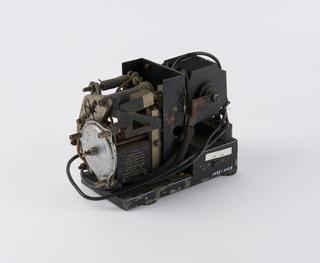Wing model used during the investigation of the Concorde wing shape
Section of wing model with small wax appendage and tubular hole, used by Mr W E Gray in the RAE 24 foot wind tunnel during investigation of the Concorde wing shape, by Royal Aircraft Establishment, Farnborough, Hampshire, England, 1960-1970.
More
Section of 1 of a collection of 37 various wing shapes made by Mr W E Gray out of polystyrene, balsa wood and wax, and used in the RAE 24 foot wind tunnel during investigation of the Concorde wing shape. In 1959 the Supersonic Transport Aircraft Committee recommended the construction of a fleet of long-range intercontinental airliners which would fly far higher and, at Mach 2.0, twice the speed of sound, far faster than those in service at that time. In 1962, the British and French Governments signed an agreement to develop the aircraft together. These wing shapes were used by W E Gray in the 24 foot wind tunnel at the Royal Aircraft Establishment, Farnborough, UK. They were used during the investigation of the Concorde wing shape with regard to side gust stability and 'Dutch Roll' phenomena.
